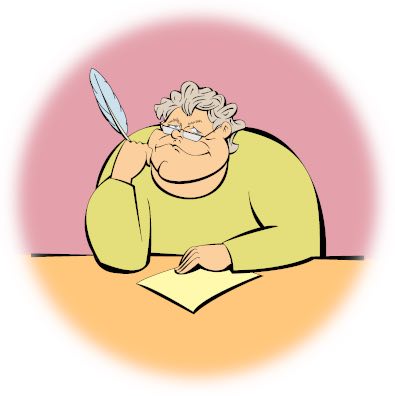Gregory Corso
The Last of First of the Beats

Actually you might argue that Gregory Nunzio Corso was arguably the First of the First Poets of the Beat Generation1. His first volume of poems, The Vestal Lady on Brattle, was published in 1955. That was a full year before Allen Ginsberg's HOWL hit the bookstores.
Gregory's book, though, had been a private printing. He had been sitting in on some classes at Harvard, and the other students and teachers had been impressed by the young man's talent. So they underwrote the cost for printing a limited edition of his verse.
Gregory had first managed to study the poetry seriously in Clinton State Prison ...
Ha? (To quote a poet.) Clinton State Prison?
Don't you mean Clinton State University.
Nope. We mean Clinton State Prison.
You see, Gregory had been placed in an orphanage when he was only one year old. Then as he was growing up in New York City he was repeatedly convicted of petty crimes. So his formative years were spent alternating between jail, reformatories, and living on the streets.
Then when at age sixteen Gregory was arrested again for stealing a suit, the authorities finally said quando è troppo è troppo! Gregory was sentenced to three years in Clinton State Prison2 in upstate New York. The slight teenager soon found himself living among the most hardened criminals in the country.
Fortunately, the Mafia was in Clinton.
Yes, you heard right. Fortunately the Mafia was in Clinton.
It seems that the Mafiosi there took the kid under their wing. They not only protected Gregory from other older and predatory inmates but they impressed upon the young man their philosophy.
That is, their philosophy of being in prison. Don't serve time, they told Gregory, let time serve you. There was a big collection of books (the story is the books were a gift to the prison from former Clinton resident, Charles "Lucky" Luciano). Even as a street kid, Gregory had always liked learning and so he immersed himself in the classics and began to study the famous poets.

Lucky Luciano
Educational Benefactor
Gregory was originally from Greenwich Village which at the time was a cheap place to live. So when he got out of prison that's where he gravitated.
There at a "beatnik bar" he met Allen Ginsberg. Allen himself had just gotten out of Columbia University Presbyterian Psychiatric Hospital where he had spent some months in lieu of a prison sentence for holding stolen goods. The two men began to talk poetry and Gregory fell into with the Tremendous Trio of the Beat Generation. That was Allen, the relatively elder William Burroughs, and the "King of the Beats" himself, Jack Kerouac.

Allen Ginsberg
!חוצפה
Like all of the Beats, Gregory wrote in free verse, the form most famously pioneered by Walt Whitman in the 19th century. As a poetic genre, free verse has always had the whiff of controversy about it. I mean, c'mon, if you're going to write poetry, dang it!, then write poetry...
And not just prose
written in broken lines
With margins and white space
Stuck in
at random.
For those who read free verse and just don't get it, don't be alarmed. There has been considerable criticism of modern poetry in recent years - and not just by the great unwashed masses. Even poets and other distinguished authors gripe about it. Pick up a magazine or browse around and you'll find comments like:
"The most striking thing about contemporary poetry is that no one seems quite satisfied with it. Non-poets, who generally don’t read poetry, are only a little less enthusiastic than poets."
"Having binned all the rules, most poets seem to think that rolling out some pastry-coloured prose, adding a sprinkling of white space, then cutting it up into little shapelets will do."
"An upstart Crow, beautified with our feathers, that with his Tygers hart wrapt in a Players hyde, supposes he is as well able to bombast out a blanke verse as the best of you: and beeing an absolute Iohannes fac totum is in his owne conceit the onely Shake-scene in a countrey."
Much of the gripe is about free verse (although the last quote was blasting blank verse3). I mean, if you look at poetry in the dwindling number of magazines that print it, there seems to be an absolute abhorrence of either rhyme or meter. In fact, you'll find poetry magazines that prohibit rhymed verse altogether. For instance, they wouldn't even think about publishing something like:
Footnote
Blank verse is poetry that has no rhyme but still has meter. Robert Frost is probably the best known American poet who used blank verse in much of his work ("Mending Wall", "Birches"). He didn't like free verse and said writing it was like playing tennis with the net down.
But it's still strange that poetry has meter but you're always taught that you should ignore the meter when reciting a poem. So you wonder what's the point.
Once upon a midnight dreary, while I pondered, weak and weary,
Over many a quaint and curious volume of forgotten lore,
While I nodded, nearly napping, suddenly there came a tapping,
As of some one gently rapping, rapping at my chamber door.
"'Tis some visiter4,” I muttered, "tapping at my chamber door
Only this and nothing more.”
Then there's also the problem that a lot of modern poems just don't make sense. Although there's scholarly debate on the topic of poetic incomprehensibility, the debates sometimes miss the obvious. Certainly modern poets make allusions like poets have always done. But unlike in the olden days when metaphors were easily identified by the typical reader, today the references may use wording that only the poets or their innermost circles recognize. For instance, when Emily Dickinson wrote:
All overgrown by cunning moss,
All interspersed with weed,
The little cage of "Currer Bell"
In quiet "Haworth" laid.
... she expected that the reader would know that Currer Bell was the pen name of Emily Brontë who had died and was buried in Haworth, England. The reference, then, is to the overgrown, even neglected, grave of the famous author.
But if a poet - or any author - makes private allusions known only to them or their friends, then no one will know what the hey they're talking about. So the average readers can only scratch their collective heads and will soon give up and go back to watching the tube.
Questioning the direction of modern poetry and its incomprehensibility has been driven home by a new type of poetry that's hit the rounds. For instance take the two following verses:
Flickering nameless
all his wounds in front
In how many places
the refugee grows old
Never knowing how.
... or ...
A birdless heaven, sea-dusk and a star
Sad in the west;
And thou, poor heart, love’s image, fond and far,
Rememberest.
... and can you tell us:
Which One was Written By
 A LOUSY COMPUTER?
A LOUSY COMPUTER?
The answer, of course, is something that the world is not yet prepared.
But it is a lack of distinguishability between a creation by something with no more consciousness than an electric light circuit and one of the most famous, nay, iconic authors in history that makes people wonder if one of the most famous, nay, iconic authors in history were simply having a bit of fun with his publishers and the public. Were they chuckling all the way to the bank?
But deliberate obfuscation is certainly not true for Gregory and his fellow Beats. If there's one thing we do known, they were completely sincere in their writings and took their poetry seriously. And we see that when Gregory said when talking about his friend Jack Kerouac:
"He could take the appellation 'poeta'5. Bob Dylan and Jim Morrison cannot although on Morrison's grave is 'poet'. Why do these rock and rollers who made all the bread and all that want that top class appellation? I know why. The poet is with the case of emperors. You see it's right up there. They're just minstrels."
Footnote
Most people think of Jack as the prose writer of The Dharma Bums, The Subterraneans, and of course, On the Road. But Jack did write poetry and if you want an entertaining and comprehensible selection read some of his haikus. They're actually quite good.
...he had a different opinion of what constitutes real poetry than a famous prize bestowing organization.
And yes, we can honestly say Gregory was the Last of the First of the Beat Poets. Jack Kerouac had been stricken with a fatal hemorrhage in 1969 at age 47 while watching "The Galloping Gourmet" on television. Both Allen Ginsberg and William Burroughs died in 1997. But Gregory lived into the first year of the Millennium and is buried - no, not in New York, but in Italy, in Rome.
And what about Charles "Lucky" Luciano whose books got Gregory on the road to being one of the most famous of the Beat Poets? Well, he died in Naples and was buried, no not in Italy but in New York.
References
"What Happened to Kerouac?", Richard Lerner (producer and director), Lewis MacAdams (director), Thelonious Monk (director), Shout Factory, 1986.
"Gregory Corso", James Campbell, The Guardian, January 20, 2001.
"Allen Ginsberg: A Biography", Barry Miles, Virgin Books, 2001.
"The Beat Hotel: Ginsberg, Burroughs and Corso in Paris, 1957-1963", Barry Miles, Grove Press, 2001.
"Why (Some) People Hate Poetry", Adam Kirsch, The Atlantic, October 2016.
"The Origins of Free Verse", Henry Tompkins Kirby-Smith", University of Michigan Press, 1998.
The House of Fame, Geoffrey Chaucer, Durham Medieval Texts, 1994.
"Is Contemporary Poetry Really in 'a Rotten State' - or Just a New One?", Sandeep Parmar, The Guardian, November 22, 2018.
Groats-Worth of Witte, Bought with a Million of Repentence: The Repentence of Robert Greene, 1592, Robert Greene, Bodley Head, London, 1923.
"11 Allusion Examples in Literature, Poetry, and Life", Hannah Muniz, PrepScholar, December 3, 2019.